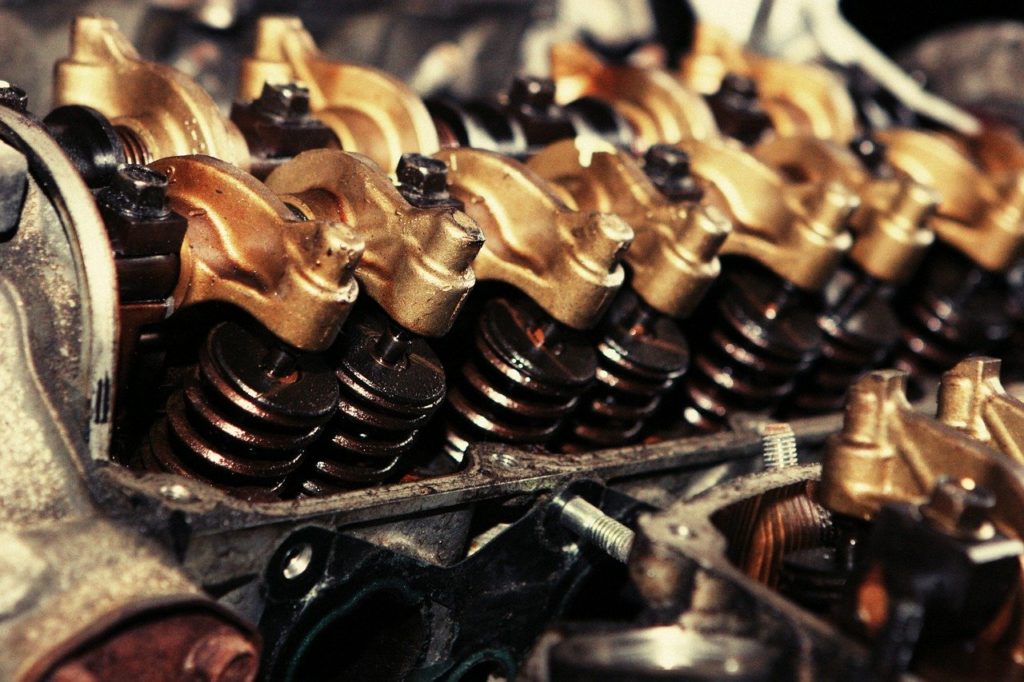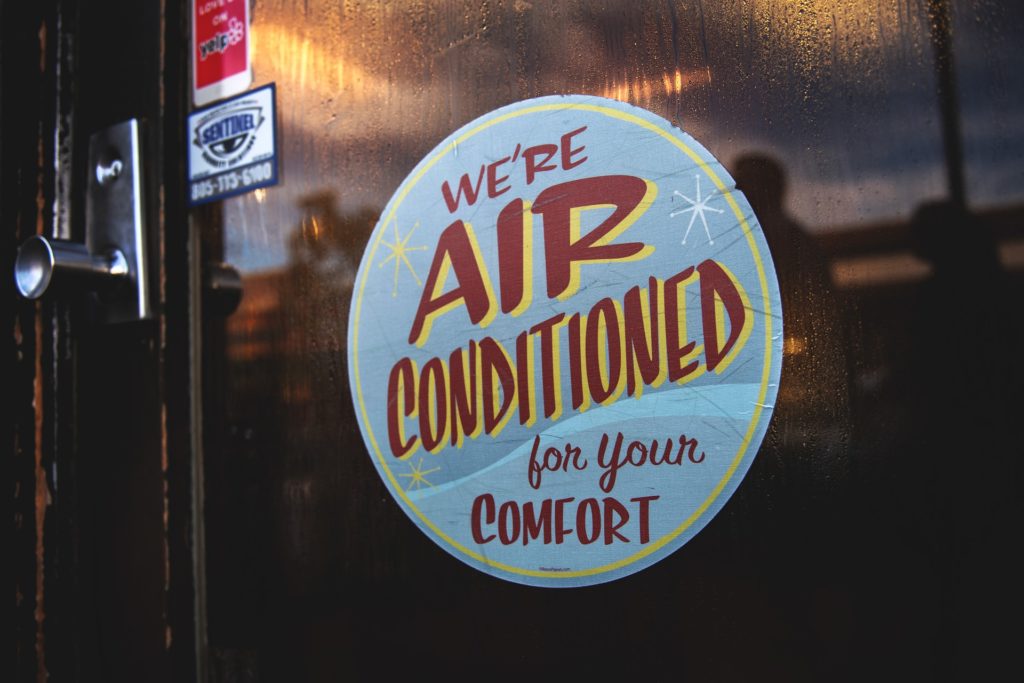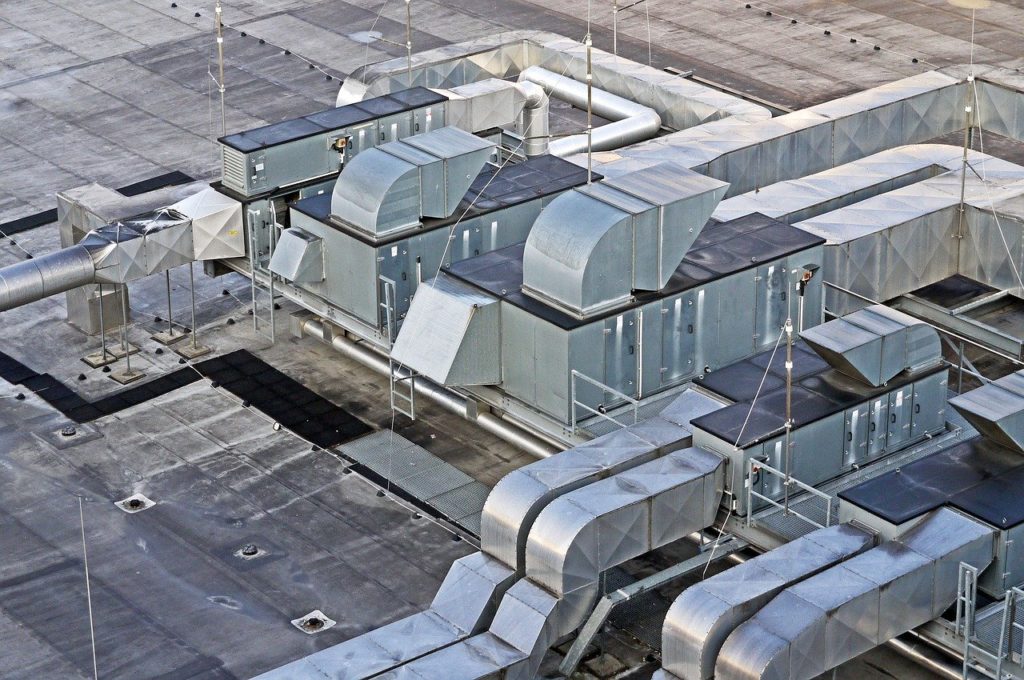In a decision between mechanical vs HVAC engineering, you must keep a “cool” head! Read on to learn the differences and similarities between these two engineering disciplines!
First, if you’re looking to launch your own blog and start writing articles yourself, no matter what the subject, you can launch your blog with Bluehost for just $3.95/month.
Start creating content and launch your blog with Bluehost.
Mechanical vs HVAC Engineering
Mechanical Engineering
Mechanical engineering is an incredibly diverse and broad field in the sense of the industries mechanical engineers work in, types of products they work on and the knowledge required of a mechanical engineer to be successful. It is concerned with with a variety of engineering issues in fluid dynamics, mechanics of materials, energy conversion, heat transfer, design and manufacturing, vibration, materials science, and electromechanical systems, along with many others.

Mechanical engineers design and develop everything you think of as a machine – from fighter jets, car engines and space vehicles to air conditioners and lifts. As a mechanical engineer you’ll design and maintain a wide variety of machines, on CAD programs like AutoCAD, Revit, Inventor and Fusion 360. These could include transport systems and power generation, renewable energy and environmental systems, vehicle and engineer design or computing and biomedical systems. There is an ever-growing demand for mechanical engineers in the biomedical, environmental, aerospace and nanotechnology fields, a mechanical engineering career can be diverse, with opportunities to innovate around every corner.
A career in mechanical engineering requires at least a bachelors degree. The programs include instruction in various system components, from computer programming to power systems, and they will cover technical areas such as thermodynamics, hydraulics, and fluid mechanics. Students are also expected to gain a basic understanding of electrical engineering, civil engineering, and chemical engineering. Many programs include coursework in fields where mechanical engineering is applied, like environmental science and business.
HVAC Engineering
HVAC (Heating, Ventilation and Air Conditioning) engineering, is a mechanical service field. A HVAC engineer specializes in maintaining, installing, and repairing heating and cooling systems. Refrigeration may also be included, so this poison may also be referred to as an HVACR engineer.

HVAC mechanics can work in many environments, from residential homes to large buildings and businesses. The bigger the job, the more likely it is that a HVAC engineer will work as part of the team among other specialists, such as electricians and sheet metal workers. HVAC engineers cover all aspects of heating and cooling systems, including maintenance, installation, inspection, general cleaning and servicing, and repairs. Some engineers specialize in a specific area, such as solar panels or radiant heating systems.
To become a HVAC engineer, you will need a bachelors degree in mechanical engineering. A masters degree is usually needed to take on management roles and a PhD is needed for jobs in research and development or higher education.
Mechanical vs HVAC Engineering Education
Mechanical Engineering
To obtain a job in the mechanical engineering field an individual will need a bachelor’s degree in mechanical engineering and/or mechanical engineering technology. Life/physical sciences, Mathematics and design are all courses typically included in mechanical engineering programs. Practical application of engineering principals is the main focus in mechanical engineering technology. Cooperative educations and internships may be included in these programs to aid students in gaining experience in the industry. Another way for engineers to further their skills in on platforms like LinkedIn Learning and edX, which carry online courses and classes for engineers.
Some schools allow students to obtain both a bachelor’s and a master’s degree simultaneously by offering 5-year degree programs. Some universities combine classroom theory with practical study that lasts for 5 or even 6 years, this allows students to obtain essential experience while also earning to ease their part-time education loan burden.
Accreditation Board of Engineering and Technology (ABET) is the accreditor for engineering and engineering technology programs. Typically employers favor aspiring engineering that possess a degree from an accredited program. An ABET-accredited degree program is typically a necessity to obtain a license as a professional engineer.

Each state outline that mechanical engineers requires licensure, which includes education, supervised work experience, and the completion of several examinations. Candidates must pass the FE (Fundamentals of Engineering) and PE (Principles and Practice of Engineering) tests, administered by the National Council of Examiners for Engineering and Surveying.
HVAC Engineering
To work as an HVAC engineer the individual would need a minimum of a bachelor’s degree. An associate’s degree in HVAC technology (or engineering technology) can help aspiring HVAC technicians to gain valuable knowledge of both installation and repair work. There are programs that also exist at the bachelor’s degree level to gain similar knowledge however if the student is hoping to progress to engineer level, they would be advised against enrolling in an HVAC program. A mechanical engineering program would be a better fit, as may allow an opportunity to branch out and study HVAC systems through other areas.
A bachelors degree program for mechanical engineering include a wide variety of academic course-work alongside core HVAC subjects they share alike with non-degree programs. Program curricula typically include heating technologies, thermodynamics, and refrigeration cycles along with the following subjects:
- Psychrometric analysis
- Air handling equipment
- Energy calculations
- Electrical load computation
- Air flow and balancing
- Pumps and piping systems
For those seeking the highest quality education who wish to become licensed Professional Engineers (PE), it’s important to attend an institution that is accredited by the Accreditation Board for Engineering and Technology (ABET). Similar to above, candidates must pass the FE (Fundamentals of Engineering) and PE (Principles and Practice of Engineering) tests, administered by the National Council of Examiners for Engineering and Surveying.
Mechanical vs HVAC Engineering Careers
Mechanical Engineering
Careers in mechanical engineering offer you the chance to drive discovery, solve problems, and help shape the world. For example, a mechanical engineer in the aerospace field might design robotic probes used to explore the far reaches of the solar system. An engineer working for a medical device manufacturer might develop new diagnostic tools to help detect disease earlier and save lives.
Mechanical engineering jobs also offer exceptional salaries. According to the BLS, mechanical engineering technicians earned nearly $18,000 more in 2018 than the median pay for all other occupations. This role typically requires only an associate degree or post-secondary certificate. Continuing your education and pursuing a specialization can lead to even higher compensation. For instance, chemical engineers, aerospace engineers, and computer hardware engineers all commanded median salaries above $100,000 in 2018. Petroleum engineers can earn even more, with a median salary in 2018 exceeding $137,000.
Working in mechanical engineering also provides ample opportunity for career advancement. From 2018 to 2028, the BLS projects that demand for engineering managers will increase by roughly 4%. Many engineers also seek licensure as a professional engineer (PE), allowing them to take on leadership roles and provide engineering services directly to the public as independent contractors.
HVAC Engineering
Working as an HVAC engineer is a good career if you enjoy solving technical problems with innovative solutions. HVAC engineers, apply their knowledge of math, engineering and physics to real-world heating, refrigeration and cooling issues. HVAC engineers troubleshoot using system analysis, HVAC theory, and design by using (CAD) computer-aided design software and other forms of technology.
The Bureau of Labor Statistics states that over the next decade the mechanical engineering field as a whole is predicted to have grow steadily. The outlook in the future for an HVAC engineer career looks very encouraging as jobs in this field are growing even rapidly.
A career as a HVAC engineer can be stressful due to the extensive calculation and planning required to install these systems, but it can be a very rewarding profession if those in this position can stay focused and help everyone work together to achieve their company’s goals.

An entry-level HVAC Engineer with under 1 year experience can expect to earn an average total compensation (includes tips, yearly bonus, and any additional overtime) of $55,403 based on 48 salaries. A slightly more experienced HVAC Engineer with 1-4 years of experience earns an average wage of $63,351, this is based on 202 salaries. An HVAC Engineer mid-career that possesses 5-9 years experience earns an average wage of $75,968 based on 80 salaries. A very experienced HVAC Engineer with 10-19 years of experience earns an average total compensation of $81,175 based on 82 salaries. In their late career (20 years and higher), employees earn an average total compensation of $84,857.
Mechanical vs HVAC Engineering Job Description
Mechanical Engineer
As a mechanical engineers you will create, design, and investigate mechanical devices, such as heating and cooling systems, industrial machinery, , robotics and transportation products. A mechanical engineer provides quick solutions to the advancement of processes and produces, these can range from small designs to very large plants, devices/machinery or vehicles/aircrafts. Mechanical engineers work on every stage of a product, from investigation and development to devise and manufacture, through to instalment and final stages.
Many industries utilize a form of mechanical systems, therefore mechanical engineering is known to be one of the most diversified of all engineering disciplines. Therefore, mechanical engineers can be employed across several sectors.
Some job responsibilities of a mechanical engineer include:
- Product development from initial to final stages (design, develop, test prototypes, manufacture and implement)
- Prepare product reports and documentation
- Identify, formulate and produce effective solutions to emerging problems
- Create systems and parts that meet specific needs and measures
- Carry out experiments calculate, analyze data and interpret results
- Evaluate final product’s overall performance, reliability and safety
- Alter and modify design to meet requirements and to eliminate malfunctions
HVAC Engineer
The HVAC (Heating, Ventilation, and Air Conditioning) system is important to almost any building. Before an individual can become an engineer they must be well educated as an HVAC engineer performs many crucial tasks. Typically, this progression starts with attending a school to become an HVAC technician and then obtaining a bachelors and/or masters degree in mechanical engineering.
They must have extensive knowledge of HVAC design for buildings, as they will be developing the entire layout for the system and installing it afterward. To be an HVAC engineer, one must have vast knowledge of a variety of programs, building codes and load calculations, and know how to use and implement HVAC equipment. These engineers work primarily indoors while a building’s main structure is established, and then arrive with a developed plan to install the HVAC system/s.

A HVAC engineer is generally the supervisor of his/her department and works regularly with other engineers and technicians to install systems and ensure they are running properly. Those in this position work normal business hours, commonly from 9am to 5pm.
Some job responsibilities of a HVAC engineer include:
- Designing and constructing HVAC systems
- Preparing cost estimates for clients
- Meeting with clients to help determine the direction you need to go with HVAC systems
- Solving problems with old HVAC system designs or completely revamping them
- Recommending solutions to system failures
- Instructing HVAC techs on the installation of your systems
- Developing design prototypes and testing them
Thank you very much for being here – we appreciate you taking the time to read our content. If you have anything to add, please feel free to leave a comment down below, and sign up to our newsletter for more of the same!
You can also follow us on LinkedIn, Facebook, Twitter, and Instagram so you can stay up to date.



